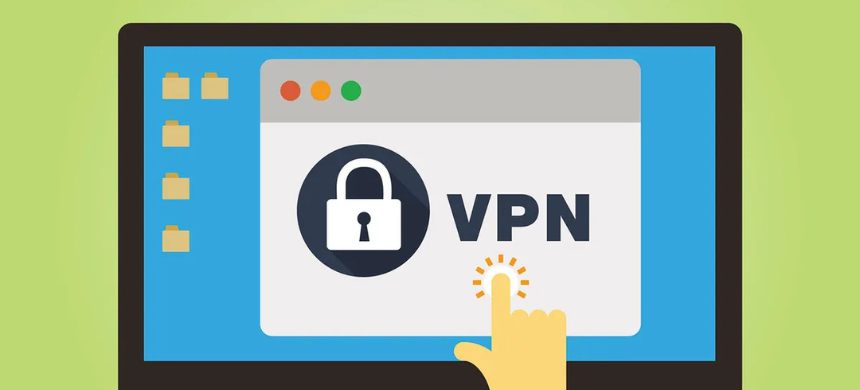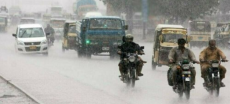In today’s digital age, where online privacy seems increasingly rare, Virtual Private Networks (VPNs) have become essential for protecting personal data, maintaining anonymity, and accessing blocked content. However, with the power VPNs offer, there comes the responsibility of using them wisely. So, are we making the most of this tool?
The internet, much like a double-edged sword, presents limitless opportunities but also exposes us to privacy risks. Whether at home, browsing social media, or accessing sensitive data over public Wi-Fi, we are constantly at risk of cyber threats.
Imagine being at a café, accessing your bank account over public Wi-Fi, unaware that a hacker is intercepting your data. Or, picture trying to visit your favorite social media platform only to find it’s blocked by the government. These are not just hypotheticals—they are everyday concerns for millions. Most people turn to VPNs for privacy protection and to bypass restrictions. But the question remains: are VPNs a necessity or just another trendy tech term?
What is a VPN?
Think of a VPN as your digital invisibility cloak. It hides your IP address, encrypts your data, and reroutes your internet traffic through a secure server, making your online actions virtually anonymous. Here’s how it works:
- It replaces your real IP address with a fake one.
- It scrambles your data, making it unreadable to hackers, ISPs, or governments.
- Instead of visiting websites directly, your traffic goes through a “tunnel” to the VPN server, which then accesses the site for you.
How does a VPN work?
Without a VPN, your data travels through your ISP’s servers, vulnerable to interception. But with a VPN, your data is routed through a secure server located in a region of your choice. Websites see the VPN server’s IP instead of yours, ensuring privacy and enabling access to restricted content.
Here’s the breakdown:
- You open your VPN app and select a server.
- The VPN creates an encrypted tunnel between your device and the selected server.
- Your data travels through this tunnel to the VPN server and then to the internet.
- Responses from websites go through the same secure process, ensuring both privacy and security.
Pakistan’s VPN Surge
VPN usage in Pakistan saw a dramatic rise in 2023, especially after the government imposed internet restrictions. In May 2023, social media platforms like X (formerly Twitter) and Facebook were blocked, triggering a 1,329% surge in VPN demand. Similarly, during another crackdown in November 2023, VPN demand tripled.
Fun Facts About VPNs
- Over 30% of VPN users admit to using it to access foreign streaming libraries.
- VPNs are not illegal in most countries unless they are used for illegal activities.
- VPNs were created by Microsoft in 1996 to secure business networks—not for streaming.
- VPN usage surged by 27% during the COVID-19 lockdowns.
- Countries with strict censorship, like Indonesia, India, and Turkey, have some of the highest VPN usage rates.
- VPNs can even reduce lag for gamers by connecting to faster servers.
- Some VPNs come with a “kill switch” feature that cuts off all internet traffic if the connection drops, ensuring your data stays protected.
Should You Use a VPN?
Now, let’s address the central question: Is a VPN right for your home or mobile network? Let’s look at the benefits and potential drawbacks to help you decide.
Benefits:
- Enhanced Privacy: VPNs protect your online activity from being tracked by ISPs, advertisers, and hackers, ensuring that your private communications and transactions remain secure.
- Robust Security: On public Wi-Fi, a VPN prevents hackers from intercepting sensitive data like passwords and credit card details.
- Bypass Geo-Restrictions: VPNs let you access content that’s geo-blocked or censored by connecting to servers in different regions.
- Cost Savings: You can access cheaper deals on flights, hotels, and subscriptions by switching your virtual location.
- Prevent Bandwidth Throttling: VPNs can help bypass ISP throttling, improving speeds during high-bandwidth activities like streaming or gaming.
Read More: PTA Won’t Block VPNs, Says Regulator
Drawbacks:
- Streaming Conflicts: Platforms like Netflix and Hulu block VPN servers, so you may need to disconnect briefly to access content.
- Mobile Location Issues: While VPNs mask your IP, your phone’s GPS can still reveal your physical location, causing inaccuracies in apps like Google Maps.
- Speed Reduction: Free or subpar VPNs can slow your connection due to encryption overhead or server distance.
- No Absolute Anonymity: While VPNs enhance privacy, browser fingerprinting and data logging policies (especially in free VPNs) can still expose your identity.
Tips for Choosing a VPN:
- Avoid free VPNs as they often sell your data.
- Choose a VPN with a “kill switch” to protect your data if the connection drops.
- Opt for a VPN that offers fast servers and has a no-logs policy.
Final Verdict: Should You Use a VPN?
Yes, if you value privacy, security, and access to restricted content, especially if you’re in countries like Pakistan where internet censorship is common.
No, if you need smooth streaming or accurate location services, as VPNs can sometimes interfere with these experiences.
Bonus Insight: Around 25% of global internet users rely on VPNs to safeguard their privacy and access a broader range of content. From military-grade encryption origins to bypassing Netflix’s VPN bans, VPNs are here to stay.










